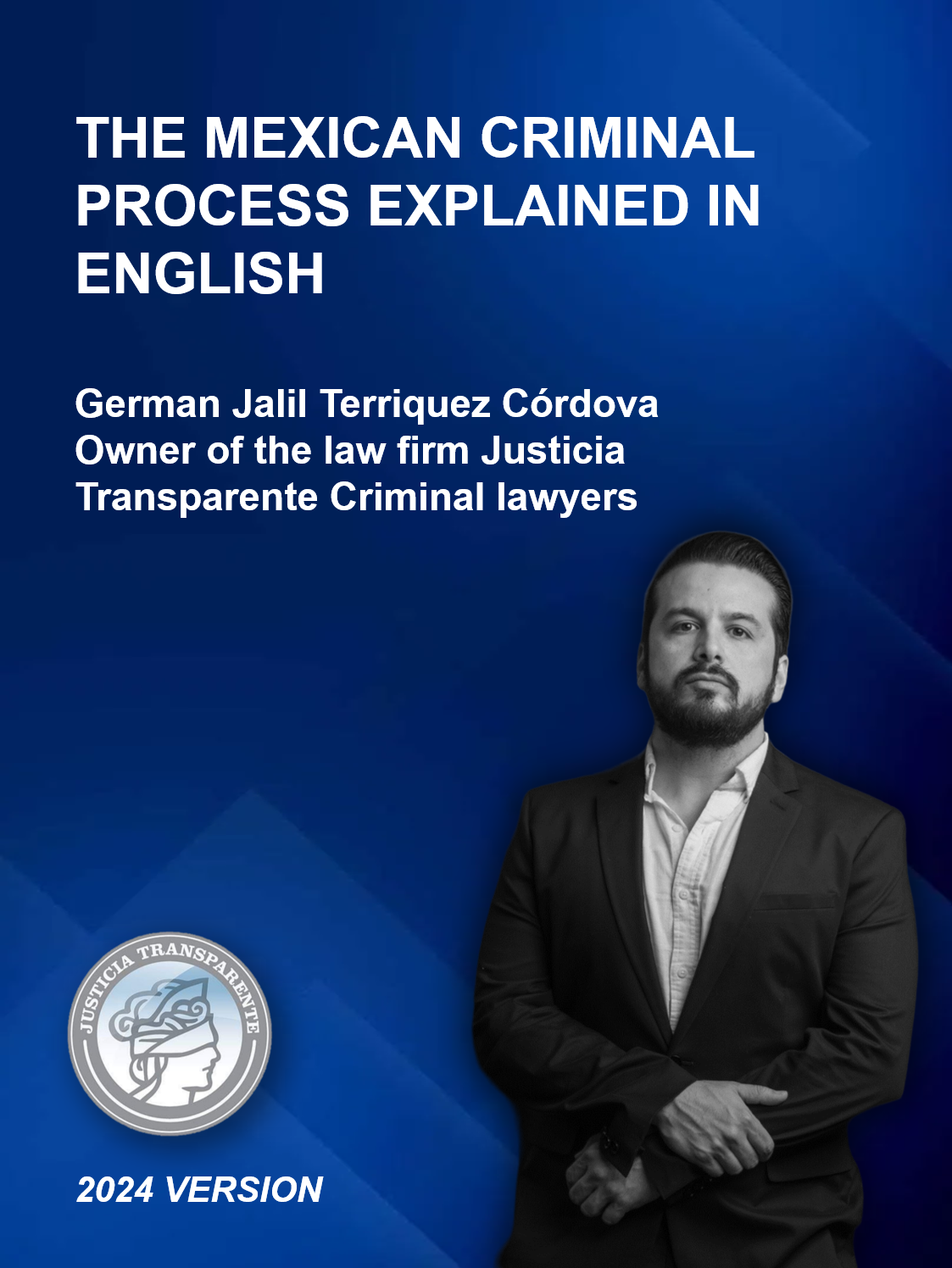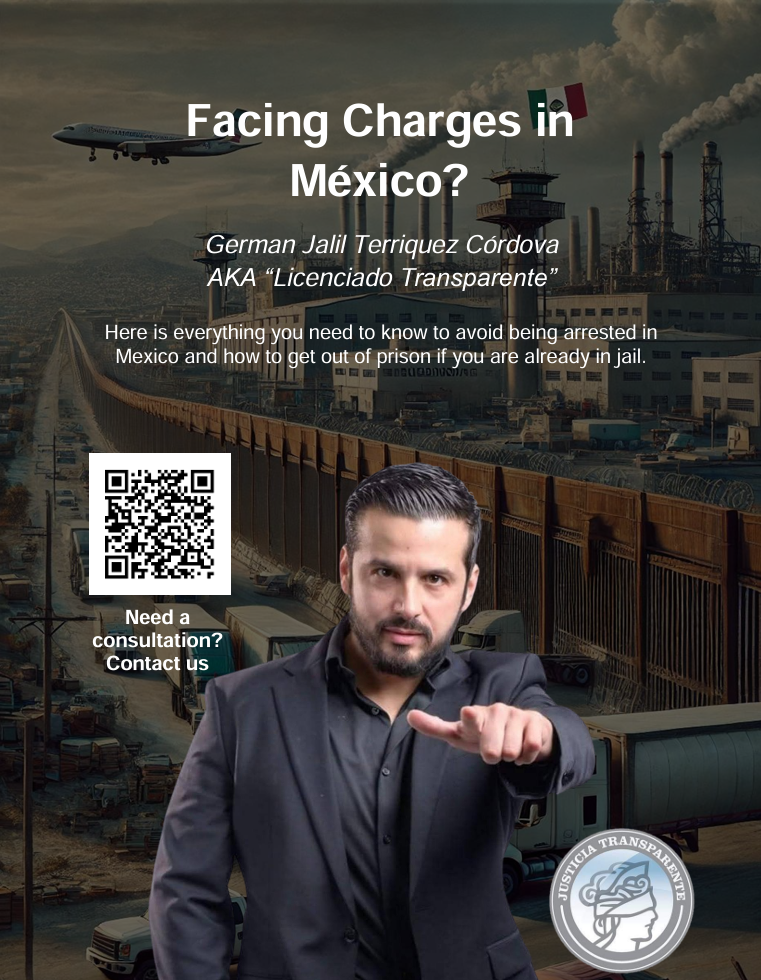Being accused of a crime can be an overwhelming and frightening experience. However, it is essential to remember that the law grants you certain rights which you can exercise upon being arrested in Mexico, whether caught in the act or due to an outstanding arrest warrant. Knowing these rights and understanding how to enforce them can make a significant difference in the outcome of your case. In this comprehensive guide, we explain your rights as an accused person in a criminal proceeding and how to protect and assert them.
Article 113. Rights of the Person Arrested in Mexico
The accused shall have the following rights:
I. To be presumed and treated as innocent until proven guilty.
Explanation: As in the United States, a person in Mexico must be proven guilty beyond a reasonable doubt by the prosecutor before being held criminally responsible. This determination is made only after an oral trial, which is similar to trials in the U.S., but without a citizen jury.
II. To communicate with a family member and with their attorney when detained, and the Public Prosecutor must provide all necessary means for this to happen.
Explanation: From the moment of arrest in Mexico, the individual has the right to call their lawyer or a family member to communicate anything in their best interest.
In the case of foreign nationals, the arresting officers and the prosecutor are obligated to inform the detainee that they may contact their country’s consulate. The individual must then state whether they wish to speak with consular representatives or waive that right.
Accused a relative of a crime in Mexico? Do you need to know if it is a crime to bring weapons into Mexico? Do you need to know if it is a crime to bring marijuana into Mexico? The prosecutor is accusing me of having committed a crime that I did not commit? Has your loved one been in jail in Mexico for years?
If you are in one of these situations, hire an online consultation.
Do you want to avoid an arrest warrant against you in Mexico?
III. To make a statement or remain silent, with the understanding that silence cannot be used against them.
Explanation: In Mexico, any statement made without the presence of a defense attorney is invalid. It is a right—and strongly recommended—that the person arrested makes no statement at the time of their arrest.
IV. To be assisted by their defense attorney when making any statements and during any other proceedings, including the right to meet privately with their lawyer beforehand.
Explanation: Statements made by an arrested person can either greatly help or seriously damage their case, depending on how they relate to the crime being investigated and the theory the prosecutor aims to prove before the criminal court.
The best recommendation is to speak with your defense attorney before making any declaration.
Visit our online store
One of our products can help you
V. To be informed, both at the time of arrest and when appearing before the Public Prosecutor or the Control Judge, of the charges against them, their legal rights, and, if applicable, the reason for the deprivation of liberty and the name of the public official who issued the order, including presentation of the arrest warrant if applicable.
Explanation: Knowing the reason for arrest is the first thing that must be communicated to the person being detained.
In practice, the specific facts for which a person is being investigated are formally presented during the initial court appearance (known as the formulación de imputación).
VI. To not be subjected at any time to techniques or methods that violate their dignity or compromise their free will.
Explanation: No arrested person can be subjected to torture, strip searches by individuals of the opposite sex, or any examination against their will.
Only if such inspection is essential for the investigation can it be authorized through a judicial order.
VII. To request a change in the pre-trial detention or other precautionary measures imposed, in accordance with the provisions of this Code.
Explanation: In Mexico, bail may not be available for certain serious offenses due to flight risks or public safety concerns. However, in most cases, it is possible to persuade a judge to allow the accused to remain free during the proceedings, for example, by reporting monthly or not leaving the city where the investigation is taking place.
VIII. To access the investigation file, and to obtain free copies, photographs, or digital records of it, unless otherwise specified by law, under Articles 218 and 219 of this Code.
Explanation: Gaining access to the criminal file held by the prosecutor is vital for mounting a proper defense.
IX. To present relevant evidence and be granted sufficient time to do so, including assistance in compelling the appearance of witnesses they cannot produce themselves.
Explanation: The person arrested in Mexico also has the right to present evidence to counter the prosecutor’s accusations.
X. To be tried by a trial court within four months if the offense carries a maximum penalty of less than two years of imprisonment, or within one year if the penalty exceeds that time—unless the defense requests more time.
Explanation: Although the Constitution guarantees a speedy trial, heavy court workloads often prevent these deadlines from being met.
XI. To be provided with adequate legal defense by a licensed attorney with a valid professional license, chosen freely even from the moment of arrest, or, if none is available, to be assigned a public defender. Meetings with the attorney must be strictly confidential.
XII. To receive assistance from a translator or interpreter free of charge if they do not understand or speak Spanish. If the accused belongs to an indigenous community, the defense attorney must understand their language and culture or be assisted by someone who does.
Explanation: If the arrested individual does not speak Spanish, the Mexican state will provide a translator who can clearly and simply explain the entire process.
XIII. To be presented immediately before the Public Prosecutor or the Control Judge, depending on the type of arrest.
Explanation: After an arrest, the person must be promptly brought before the prosecutor (if caught in the act) or before a judge (if arrested under a warrant).
XIV. To not be exposed to the media.
Explanation: This right protects the presumption of innocence. Media exposure before a conviction can compromise judicial impartiality and violate due process.
XV. To not be presented to the public as guilty.
XVI. To request social assistance at the time of arrest for minors, persons with disabilities, or elderly individuals under their care.
XVII. To obtain their release if no pre-trial detention or other restrictive measures have been ordered.
Explanation: An arrested person may request release through the prosecutor’s office if the offense is eligible for resolution through settlement or investigation without detention.
This is more difficult for foreign nationals due to the high flight risk if released and returning to their home country before the trial ends.
XVIII. To have their embassy or consulate notified upon arrest, and to receive immigration assistance if they are a foreign national.
XIX. Any other rights established by this Code or other applicable laws.
If you’ve been arrested in Mexico, don’t hesitate to contact us for legal advice and defense anywhere in the country.
The Mexican criminal process explained in English

Facing Charges in México?.




